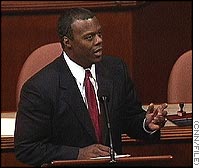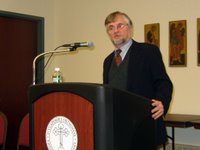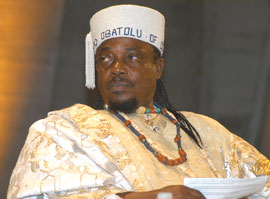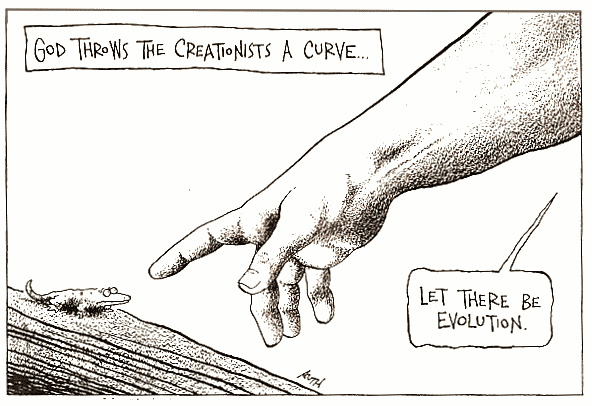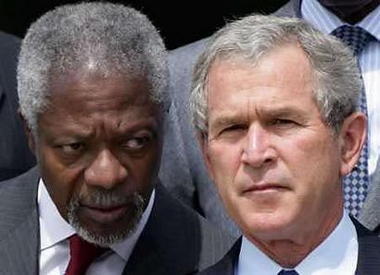At the bottom of each individual posting you'll find a link:
The bottom of each posting is likely also to have a link to a posting that has the events organized by themes:
You can scroll down through the entire blog, which is in rough chronological order (because of the way blogs work, this requires entering postings in reverse order, the most distant in the future first). But as I learn about and research additional events, the chronological order will get rougher and rougher. When in doubt, click on the Return to Navigating IndyBuzz link, and you should come to this posting.
All this is intended to help go where you know you want to go while still exploring unfamilar territory, to find what you want to find and to find what you didn't know you really wanted to find until you stumbled onto it.
As always, please tell me about any events you think should be IndyBuzzed. E-mail me at John@sipr.org.
The latest pass of IndyBuzz-recommended events:
March 30: Observe Nin Andrews and Brady's Leap push the bounds of intellectualized sexuality
March 31: Ask film expert Dennis Bingham of IUPUI "who deserves a biopic?"
April 1 and 2: Consume your music as a happening with Orkestra Projekt
April 3: Join a Community Summit on Citizen Diplomacy at Marian College
April 4: Get riled at the ACLU's debate over same-sex marriage
April 5: Hear University of Indianapolis professor Milind Thakar analyze US-Iran relations
April 5: Hear about "Israelis and Palestinians: After the elections ... what next?" from Israeli Consul General Barukh Binah
April 5: Chat with Ambassador Joseph Huggins about Africa
April 6: Seize another chance to hear Barukh Binah on the Middle East
April 6: Head to Purdue to hear Lech Wałęsa
April 7: It's First Friday, get out and appreciate some art
April 8: ¡Tango con Tanguísimo!
April 12: Watch Steven Pinker, the world's foremost popularizer of cognitive psychology, and his hair
April 12: Hear Fran Quigley on human rights and the war against terrorism
April 13: Join Chinese dissident and possible Nobel Prize winner Bei Dao
April 13: Shake up your liberal modern worldview with Victor Davis Hanson
April 18: Join a discussion of “Latin America - The political environment and economic opportunities with a look at Cuba”
April 18: Listen to prize-winning Nigerian writer Chris Abani
April 19: Take your second chance to hear Charles Dhanaraj explain whether China and India are rivals or allies
April 19: Hear the historian Forrest McDonald tell us why we are in trouble
April 19: Get your paranoia fix when David Rothkopf talks about the shadowy National Security Council and US politics
April 21: Be the first to hear the results of Sagamore institute's study of the economic relations between Indiana and Mexico
April 24: Learn about why the eventual democratization of China is great news for our grandchildren, but maybe not such a good deal for us today
April 25: Warm up for the International Film Festival with a very special opera performance
April 25: Be the first kid on your block to have an autographed copy of Milton Viorst's new book, Storm From the East: The Struggle Between the Arab World and the Christian West
April 26: Discuss energy security with John Clark
April 26 to May 4: Spend nine days at the International Film Festival of Indianapolis!
April 27: Hear selections from the opera Turandot performed while viewing works from the greatest living Chinese traditional artist
May 3: Talk Turkey with Çiğdem Balım of IU
May 3: Hear Sally Pipes on market-based solutions for the American health crisis
May 10: Discuss pandemics and global security with Eric Meslin of the Center for Bioethics
May 15: Celebrate USAID director Randall Tobias, Indianapolis International Citizen of the Year
May 17: Join another discussion of UN Reform with Ed DeLaney
May 24: Analyze Brazil with Craig Auchter of Butler University
Return to Themes underpinning IndyBuzz



